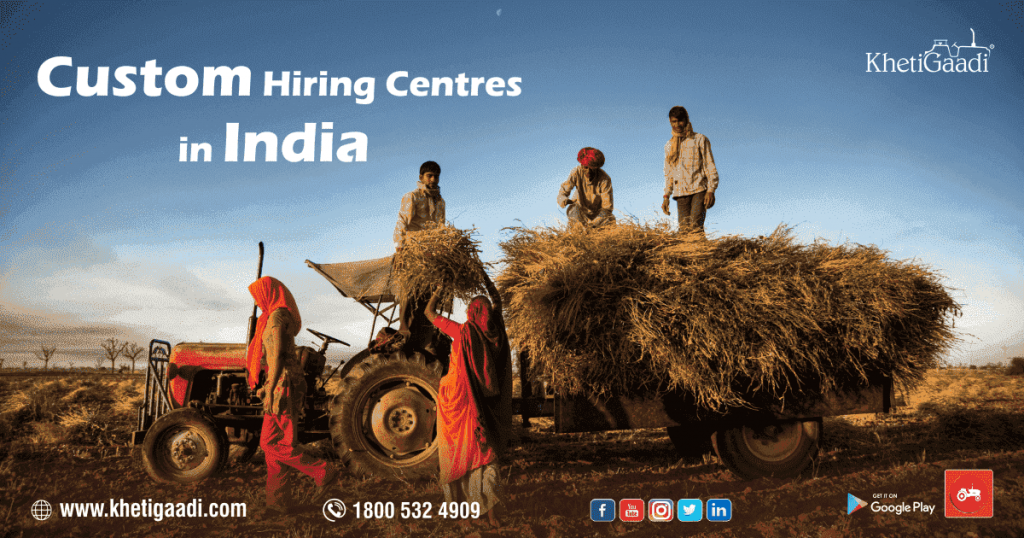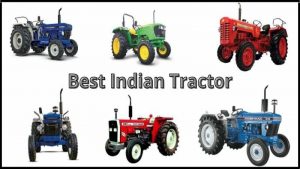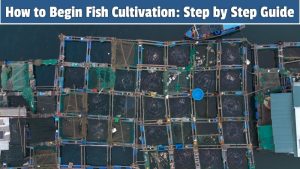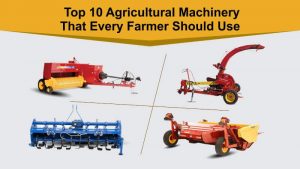Agriculture in India: The future of Indian agriculture lies in widespread mechanization if we are to achieve higher crop yields to meet the food demands of a growing population. Intensive agriculture can only be practiced with the use of machinery. Nearly all farm operations such as tilling, planting, fertilizing, spraying, irrigation, harvesting, winnowing, threshing, and packing have now become mechanized, and using farm machines for these tasks has reduced labour drudgery, freed up labour for other farm tasks, cut down the time taken to complete certain farming tasks, ensured better and more thorough work, and saved on time and expenses.
While these are excellent reasons for farm mechanization, the prohibitive costs of farm machinery can deter farmers on the low-income farming spectrum. They may be reluctant or unable to incur loans from banks and other financial institutions to finance the purchase of the needed farm equipment. Also, given that they may only need the farm machinery for a few days or weeks in a year, they may not think it justifiable or worthwhile to go into debt to pay the high price of the machinery. Farming debts have made farming an uneconomical prospect for many Indian farmers, forcing many of them to give it up altogether and turn to other occupations. According to the research carried out by Singh and Kingra between 2007 and 2010, two lakh farmers with small landholdings gave up farming because they could no longer afford to continue.
Yet, on the flip side, without tractors and other farm machinery, Indian farmers are likely to lag behind in their agricultural endeavours and not make much of a profit either. To avoid this and make farm machinery and implements available to farmers with small or medium-sized landholdings, the Indian government has been encouraging state-sponsored and entrepreneur-owned custom hiring centers to cater to the farmers’ requirements. Under the Sub-Mission on Agricultural Mechanization, (SMAM) scheme, agriculture in India, Indian states received 160 crore rupees in 2016-2017 to offer financial assistance for setting up custom hiring centres. In addition, the government has directed Indian banks and other financial institutions to extend loans to people interested in starting custom hiring centers.
Custom Hiring Centers
With the availability of custom hiring centres, Indian farmers won’t need to wade into the financial quagmire of exorbitant loans and high-interest loan repayments. They can simply hire the farm machinery and implements they require from the custom hiring centre. They may choose to hire specific machinery for specific farming purposes and only for specific periods, such as for a few days in the planting season or during the harvest season and pay only for that duration. If the farmers need training and instructions on how to use the machinery, the custom hire centre is likely to provide it, or it may send along an experienced machine operator to work the machinery on the farm. After usage, the farmers can return the machinery to the custom hiring centre, and they don’t need to be concerned in any way with the expenses involved in machinery maintenance and machinery storage.
On the other hand, with draft animals, the farmer must house them, feed them, maintain them, and pay any necessary veterinarian bills.
Since small and medium-sized farms constitute almost 80% of the farm landholdings in India and it is imperative to mechanize as many of these farms as possible, if India is to gain food sufficiency, the growth potential for custom hiring centres is huge.
Visit our page for more information about Tractor, Agricultural implements, Tractor Price, Tractor Videos, and Tractor Games.




